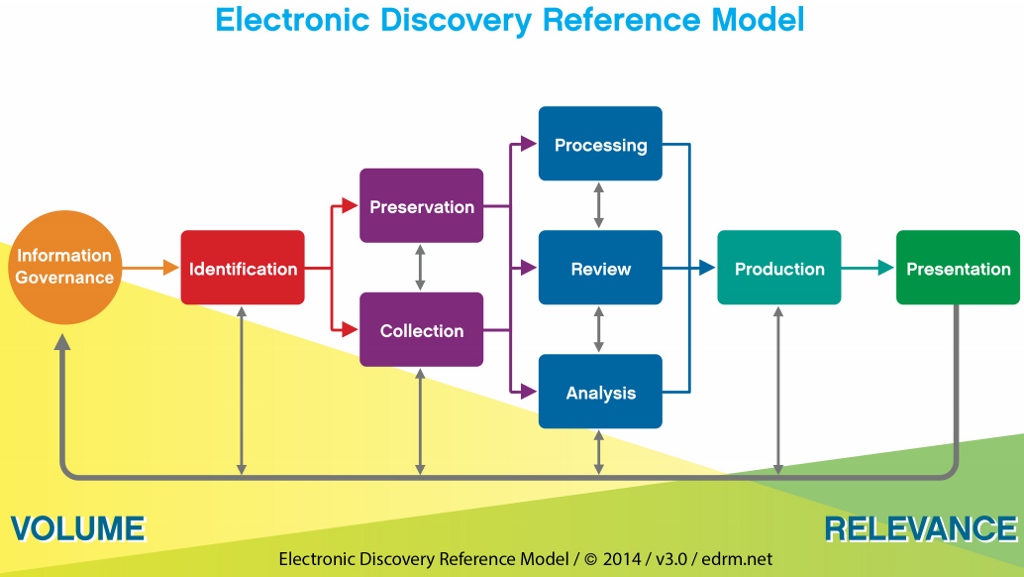* This post discusses and repeats major points from the last post. However, it also includes discussion regarding how these amendments impact corporations and businesses.
KEY POINT: The codification of proportionality standards should be noticed and immediately implemented within corporate record retention policies in a collaborative effort by corporate information technology (IT) and legal departments. Those willing to take proactive measures in adopting suitable document retention policies can dramatically reduce their respective employer’s litigation cost and exposure to potential liability.
As of December 1, 2015, Federal Rules of Civil Procedure (“FCRP”) were amended primarily in response to challenges surrounding Electronic Discovery (“eDiscovery”). The amendments can benefit corporations who are willing to be proactive in adopting record retention policies to reduce litigation cost and exposure moving forward.
The amendment to Rule 1 emphasizes the collective goals of the FRCP by stating that the rules “should be construed, administered, and employed by the court and the parties to secure the just, speedy, and inexpensive determination of every action and proceeding.” (Emphasis added) Although, the amendment does not prescribe additional sanctions or specific methods to accomplish these goals, it does serve as a reminder to litigators and corporate counsels that cooperation and compliance with these rules is highly recommended and discourages misuse and abuse of procedural tools to increase burden and cost. Corporations need to monitor and assure their outside counsel’s employ these standards and are working diligently to reach a “just, speedy, and inexpensive” determination of any legal proceeding.
The amendment to Rule 16 specifically addresses eDiscovery by providing that “[t]he scheduling order may provide for disclosure, discovery, or preservation of electronically stored information…” Furthermore, the rule also reduced the time for issuing a scheduling order from 90 to 60 days in furtherance of the overall theme of these amendments to secure a just and speedy trial. The judge still maintains complete discretion to extend the time in issuing a scheduling order if in good faith determined that the complexity of the matter requires additional time. Nonetheless, corporations need to identify and execute legal holds timely and adequately to ensure all relevant data is being preserved.
The amendment to Rule 26(b)(1) codifies the heavily litigated cost/benefit analysis relative to the scope of discovery. It also eliminates the previously adopted vague and ambiguous language by providing for a more concrete analysis in determining the scope of discovery. The amendment in relevant part states that, “[p]arties may obtain discovery regarding any nonprivileged matter that is relevant to any party’s claim or defense and proportional to the needs of the case, considering the importance of the issue at stake in the action, the amount in controversy, the parties’ relative access to relevant information, the parties’ resources, the importance of the discovery in resolving the issues, and whether the burden or expense of the proposed discovery outweighs its likely benefit. Information within its scope of discovery needs not be admissible in evidence to be discoverable.” The codification of these standards can benefit and should be utilized collectively by IT departments and legal departments, willing to take proactive measures in adopting document retention policies that may reduce the cost and liability for corporations. The initial adoption of a record retention policy conforming to these standards may prove to be complicated and time consuming considering every Corporation faces its own unique set of challenges. However, upon successfully adopting an adequate policy, the benefits will most certainly outweigh any initial burdens and expenses.
Rule 34(b)(2)(B) is amended to reflect common practices of litigators in producing Electronically Stored Information (“ESI”). The rule provides that the documents must be produced within the time specified in the request or at a later “reasonable” time. This rule further emphasizes the need to produce documents on a “rolling basis” so the requesting party has adequate time to review the productions. Amendment to Rule 34(b)(2)(c) also discusses the frequently occurring confusion that arises when a producing party has multiple vague objections to a request, but still produces some of the requested information. This practice makes it difficult to determine whether any relevant and responsive information has been withheld on the basis of the objection. Accordingly, parties must now expressly state that certain documents have been withheld in furtherance of the objection. The committee notes suggest that the objecting party need not to include a detailed log of documents being withheld, rather a general description of documents being withheld should suffice. This amendment will not directly impact corporate counsels, but does emphasize the need to retain outside counsels who understand the technology and related FRCP guiding discovery exchanges in modern times.
The amendments to Rule 37 are likely to have the most significant and immediate impact on litigation. The rule, in relevant part, codifies the common-law duty to preserve ESI when litigation is reasonably foreseeable. Previously, the rules provided that sanctions cannot be imposed due to ESI lost as a result of “routine, good faith operation of an electronic stored information system.” However, the amendment provides that the duty to preserve is unconditional and the parties must take reasonable steps to comply with such duty. If the parties fail to preserve ESI, and it cannot be restored or replaced through additional discovery (quite often ESI is stored in multiple locations) the court “may order measures no greater than necessary to cure the prejudice.” Furthermore, if the court finds that the party acted with intent to deprive another party of the information, the presumption is that the information sought was unfavorable. This rule does not impact or overrule the validity of an independent tort claim for spoliation permitted under state law. Michigan has not previously permitted sanctions due to spoliation; however, the courts have consistently stated that a trier of facts may support sanctions due to spoliation. This rule will most certainly impact corporations record retention policies, and will provide an additional factor to consider when adopting such policies.
The Committee does understand the practical difficulties for individuals and unsophisticated parties in complying with the amended rules. Accordingly, the Committee provided the following consideration in addressing these concerns:
“This rule recognizes that ‘reasonable steps’ to preserve suffice; it does not call for perfection. The court should be sensitive to the party’s sophistication with regard to litigation in evaluating preservation efforts; some litigants, particularly individual litigants, may be less familiar with preservation obligations than others who have considerable experience in litigation.”
This added protection will prevent corporations from seeking dismissal of cases brought by individuals who may have failed to preserve all the necessary information relevant to their respective case.

 Pursuant to Google Trends “eDiscovery” seems to be the most acceptable and used term when discussing (or searching) Electronic Discovery related topics (
Pursuant to Google Trends “eDiscovery” seems to be the most acceptable and used term when discussing (or searching) Electronic Discovery related topics (
